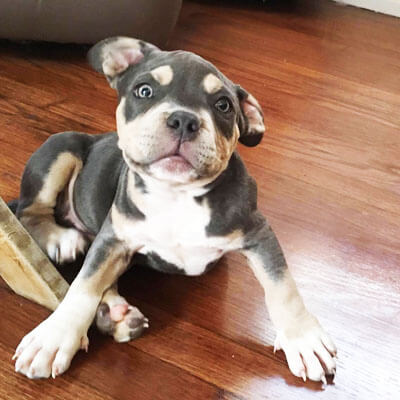What Can My Mini Pit Eat
Feeding: What should I feed a Miniature Pitbull?
There are multiple feeding requirements for Pocket Pits, mainly depending on the stage of life that they are in.
Obviously, the first few weeks of a puppy’s life he will be feeding off of his mother. When they are old, enough to be, taken to their forever homes, they will have been weaned off of their mother and introduced to puppy food specifically developed for their nutritional needs at this stage. It is up to you to choose the right puppy food to feed him. It is best if you continue feeding the same food that the breeder had weaned him onto to prevent making the pup sick. Puppies should stay with this food until they are about a year old (unless the veterinarian directs you otherwise).

Rex
After your, Miniature Pit celebrates his first birthday he will need to start eating adult dog food (assuming that the veterinarian has approved this move or hadn’t put him on adult food already). Most specialists will recommend keeping the same brand of food throughout his life. When you introduce a new food, do so slowly. Add a little of the new food with a little of the old food to prevent making your pup sick. For example, when you are switching your puppy food to adult food, provide half a serving of the puppy food and half a serving of the adult food. You should continue this for about a week. After that, your pooch should be able to handle a whole serving of adult dog food.
Miniature Pitbulls should be fed 2.5 to 3 cups of dry kibble every day. These servings should be divided into 2 to 3 meals per day. For example, provide a cup of food at breakfast, a cup of food at lunch and a cup of food at dinner (this will equal the recommended 3 cup servings per day).
You should provide a quality dog food. This is where reading the ingredients list and nutritional facts will come in handy. A quality dog food will have high protein and other essential nutrients. The ingredients list will start with the protein source (should be chicken, turkey, etc.). It may also have rice, and other beneficial grains included to help keep your dog fuller longer, contribute to maintaining his weight, as well as to provide him with his daily carbohydrates. Talk to your veterinarian for recommendations on brands, quality, ingredients, and quantities that are specific to your dog!
